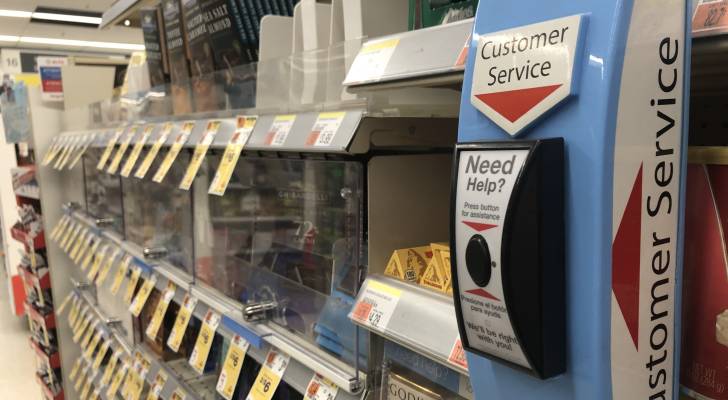America’s most-robbed Walgreens was the victim of at least three thefts within 30 minutes in July, according to CNN Senior National Correspondent Kyung Lah — one of the latest examples of brazen crime at the location.
The thefts were witnessed during the filming of a televised report at the Walgreens in San Francisco’s Richmond neighborhood. According to Lah, Walgreens has identified this location as having the “highest theft rate” — hit more than a dozen times a day — of the pharmacy chain’s nearly 9,000 U.S. stores.
Don’t miss
-
Worried about the economy? Here are the best shock-proof assets for your portfolio. (They’re all outside of the stock market.)
-
Commercial real estate has outperformed the S&P 500 over 25 years. Here’s how to diversify your portfolio without the headache of being a landlord
-
Americans are spending a ridiculous $253/month more on groceries. But this simple hack can turn your stressful daily spending into a golden nest egg
Shoplifting had become so bad in the Bay Area store that staff resorted to securing certain items with padlocks and chains. But they were ordered by corporate to remove them “because of the negative messaging,” Lah said.
Still, many other products at this location, including ketchup and mustard, remain locked behind plastic casings.
Other stories across the city have also resorted to locking up more products like cosmetics, frozen food and even coffee.
San Francisco resident Richie Greenberg, who toured the Richmond Walgreens with Lah, described what he felt after previously seeing the chained-up items.
“This was bizarre, something I’d never seen before,” he said. “This is just more icing on the cake. Telling us that rampant crime has become a regular part of life.”
A retail exodus
Several retail giants — including Nordstrom, H&M, Marshall’s, Gap, Banana Republic, Anthropologie and Office Depot — have announced they’re pulling the plug on some San Francisco locations.
When Whole Foods announced in mid-April that it was temporarily closing its store at Trinity Place in the city’s Tenderloin District, a spokesperson for the grocer expressed concerns about “the safety of our team members” due to criminal activity near the store.
Read more: It’s going to be ugly’: This CEO issued a dire warning about U.S. real estate, saying areas will be ‘destroyed’ — but he still likes 1 niche
These issues, while significant in San Francisco, are not isolated to the Bay Area.
According to a study by the National Retail Federation, organized retail crime and theft are growing in both scope and complexity across the U.S.
To combat this, Home Depot CEO Ted Decker announced in June that the home improvement company would be “investing in more security guards” to protect the safety of its employees and customers. This sadly follows the deaths of two Home Depot employees during theft incidents.
Concern for commercial real estate
Many cities have seen retail store closures in recent months. Insider recently reported that as many as 2,373 major retail stores are set to close this year across the U.S — not all down to crime, but some due to dwindling foot traffic in the age of online shopping and economic factors like rising interest rates.
These trends are causing headaches for commercial real estate investors, since they present more challenges for the already shaky and debt-ridden sector.
In particular, office real estate is under immense strain due to the rise in remote and hybrid work during and after the COVID-19 pandemic. Rising borrowing costs are also squeezing property owners and complicating real estate financing.
In recent months, high-profile investors — including Elon Musk — have sounded the alarm about a potential market crash.
Real estate investing expert Patrick Carroll said the commercial real estate market is tumbling toward a crash that could be as devastating as the 2008 crisis.
“The party’s over, unfortunately,” he said. “The office market’s going to be destroyed, hotels are going to be destroyed — it’s going to be ugly.”
What to read next
This article provides information only and should not be construed as advice. It is provided without warranty of any kind.
Read the full article here









